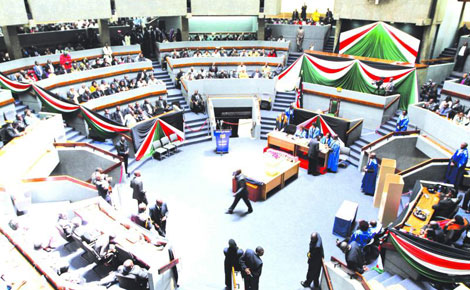×
The Standard e-Paper
Smart Minds Choose Us
 |
| Senate had wanted governors to be secretaries to the County Development Boards which the mediation team has rejected. |
Senators have edged out their National Assembly counterparts in the tussle to chair the powerful forum on development programmes in counties.
The Mediation Committee formed to find a common ground over the contentious clauses of the County Government (Amendment) Bill has retained senators' proposals that they will be the chairpersons of County Development Boards (CDBs).